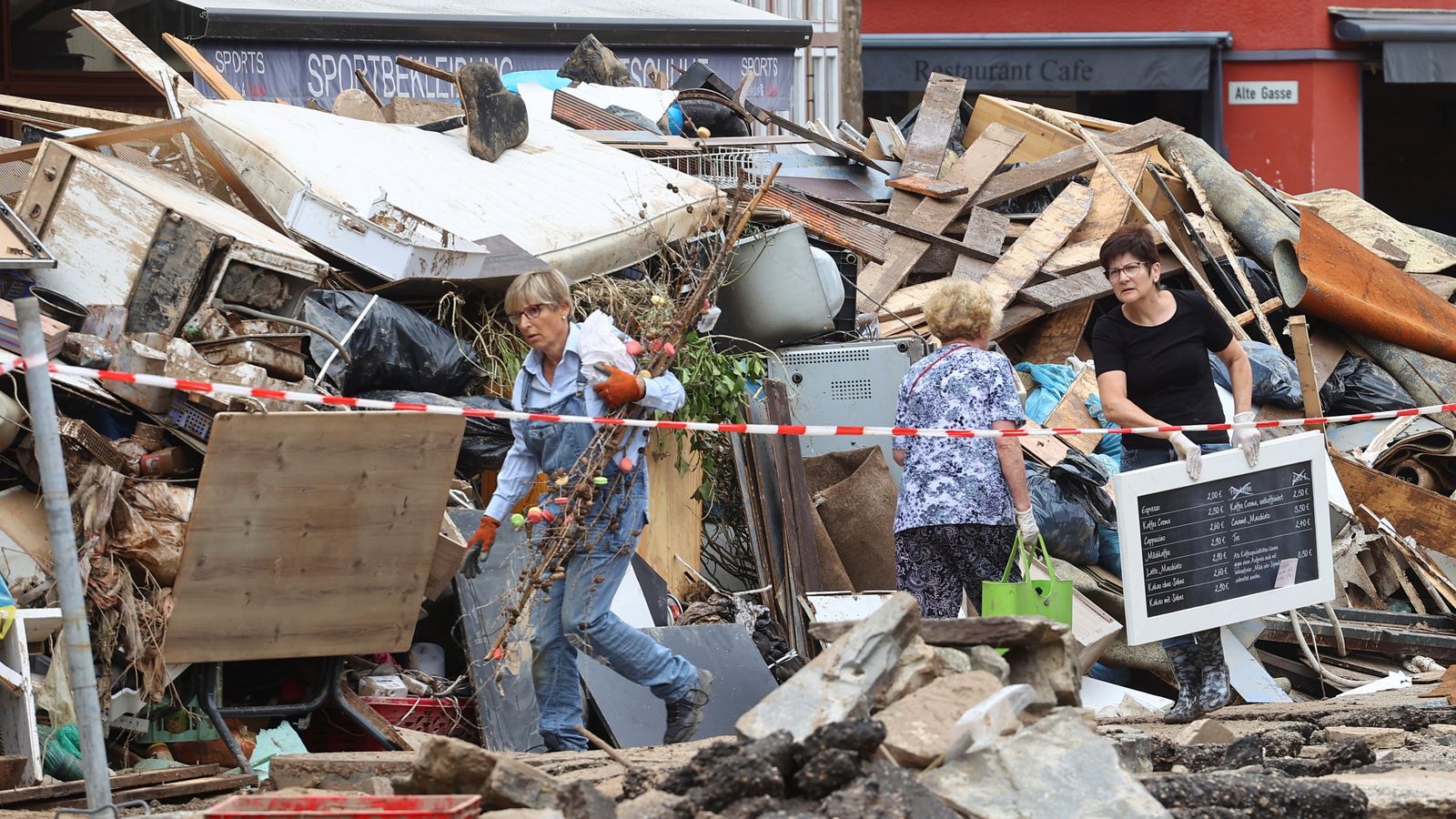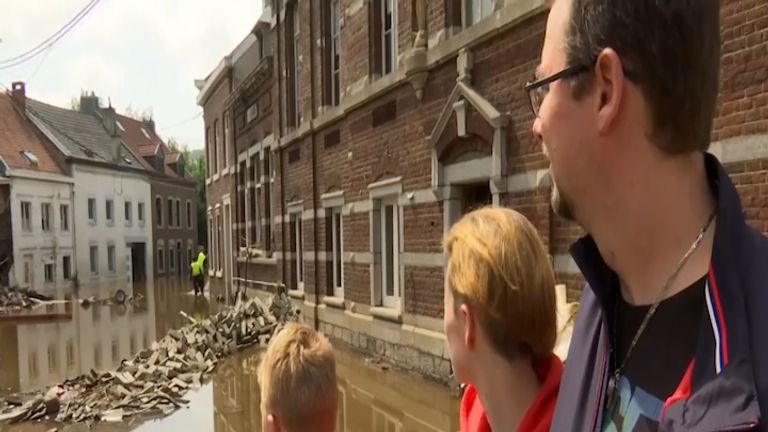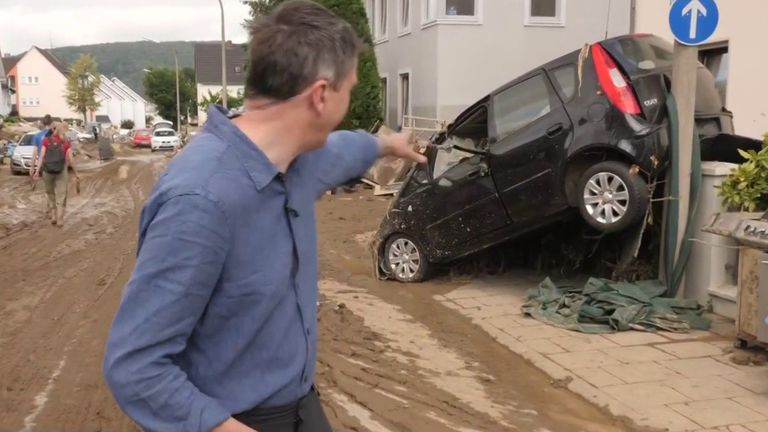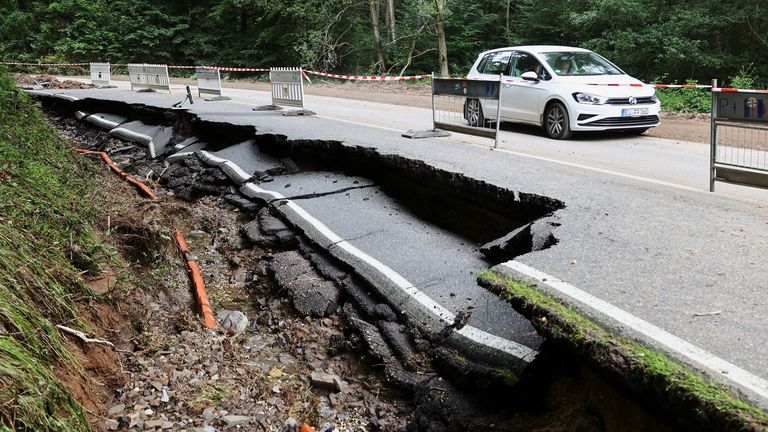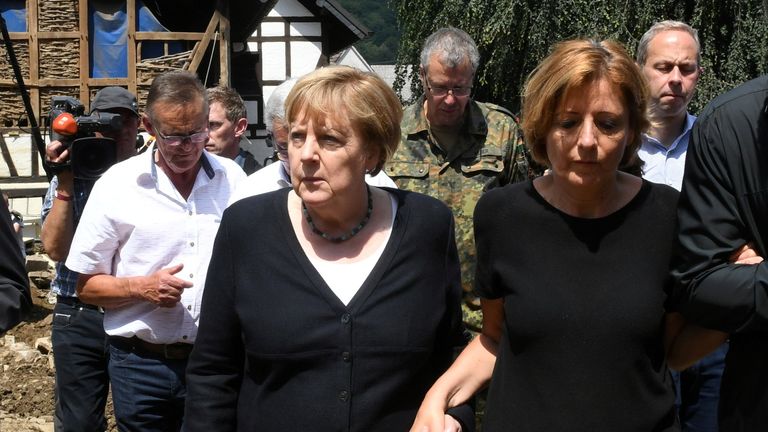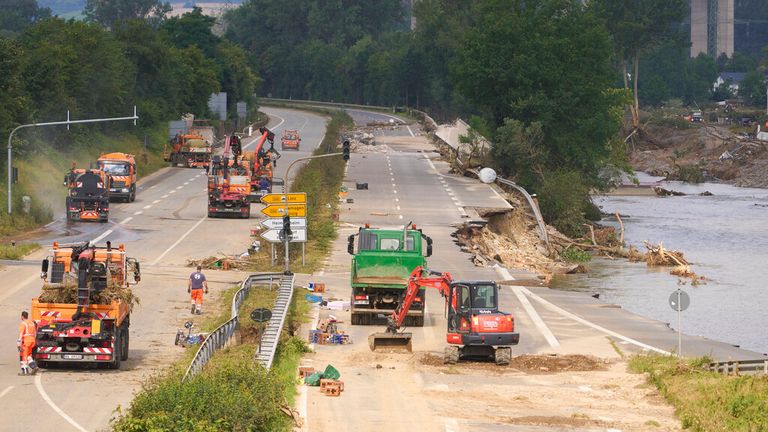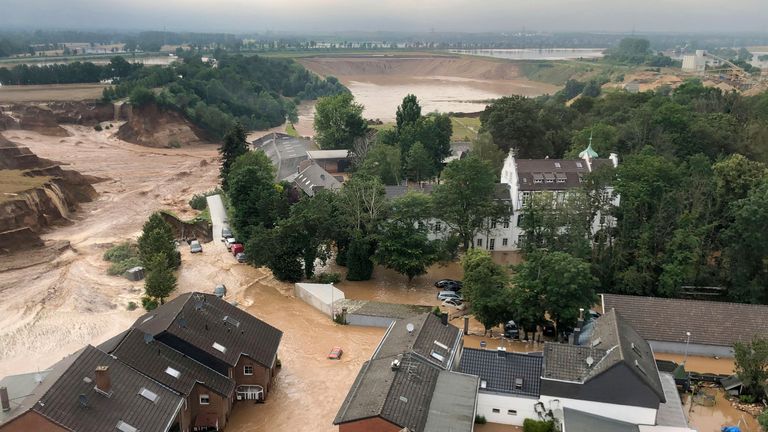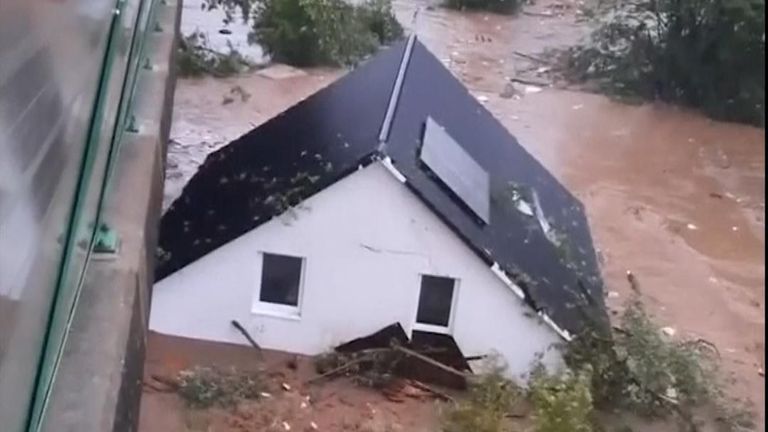German officials have defended their anti-flooding measures after torrential downpours submerged towns and villages and killed at least 195 people across the country and Belgium.
At least 117 people are confirmed to have died as a result of flooding in the worst-affected German state of Rhineland-Palatinate, 46 in North Rhine Westphalia, one in Bavaria, and 31 in Belgium.
The Netherlands was also hit by the sudden downpours last week in mainland Europe which caused homes to collapse.
Efforts to clean up the chaos caused by the unprecedented rainfall and hunt for survivors continued on Monday, as German authorities sought to defend their preparedness.
Economy minister Peter Altmaier told the Bild newspaper, “this isn’t about finger-pointing – it’s about improvements for the future” – promising a full investigation once everyone gets the urgent help they need.
“As soon as we have provided the immediate aid that stands at the forefront now, we will have to look at whether there were things that didn’t go well, whether there were things that went wrong, and then they have to be corrected,” he said.
The head of Germany‘s civil protection agency, Armin Schuster, said the weather had been “forecast relatively well” and that all major rivers had been prepared for flooding.
But he told ZDF television that even forecasters were caught by surprise.
“Half an hour before, it is not often possible to say what place will be hit with what quantity [of water],” he said.
On a visit to the hard-hit village of Schuld in Rhineland-Palatinate with Chancellor Angela Merkel on Sunday, state interior minister Roger Lewentz said local authorities “tried very quickly to react”.
But he too suggested it was impossible to predict, saying: “This was an explosion of the water in moments.
“You can have the very best preparations and warning situations [but] if warning equipment is destroyed and carried away with buildings, then that is a very difficult situation.”
Questions have been raised over how well people were alerted to the imminent rain.
Mr Schuster said 150 warning notices were sent out via mobile apps and the media.
But it was not clear how many flood sirens sounded after a test of Germany’s emergency warning systems last September revealed considerable failings.
The probe found that many sirens had been removed after the Cold War and push alerts for the national warning app were sent late or not at all.
On their visit to Schuld, Mrs Merkel promised affected residents a “rapid recovery” from this week.
Her cabinet is expected to draw up a package of immediate and medium-term financial aid on Wednesday.
She has seemingly rejected the idea of obligatory insurance for people living in high-risk areas, saying it wouldn’t be affordable for residents or businesses.
